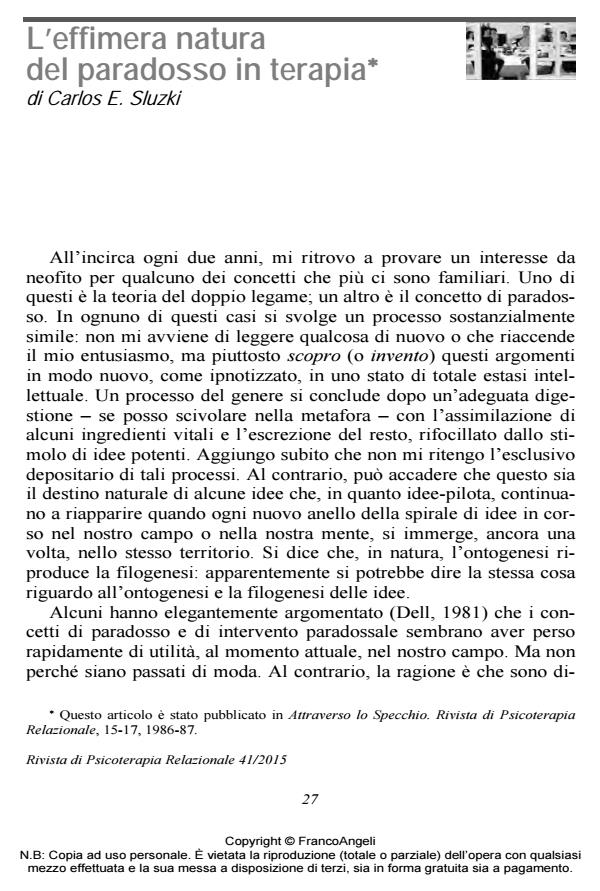L’effimera natura del paradosso in terapia
Journal title RIVISTA DI PSICOTERAPIA RELAZIONALE
Author/s Carlos E. Sluzki
Publishing Year 2015 Issue 2015/41 Language Italian
Pages 6 P. 27-32 File size 33 KB
DOI 10.3280/PR2015-041004
DOI is like a bar code for intellectual property: to have more infomation
click here
Below, you can see the article first page
If you want to buy this article in PDF format, you can do it, following the instructions to buy download credits

FrancoAngeli is member of Publishers International Linking Association, Inc (PILA), a not-for-profit association which run the CrossRef service enabling links to and from online scholarly content.
- Dell P. (1981). Paradox Redux. Journal of MaritaI and Family Therapy, 7: 127- 134.
- Haley J. (1967). Advanced Techniques of Hypnosis and Therapy: The Selected Papers of Milton Erickson, M.D. New York: Grune and Stratton
- Haley J. (1976). Problem-Solving Therapy. San Francisco: Jossey-Bass (trad. it.: La terapia del Problem Solving. Roma, La Nuova Italia, 1985).
- Rohrbaugh M., Tennen H., Press S., White L. (1981). Compliance, defiance and therapeutic paradox: Guidelines for use of paradoxical intervention. American Journal of Orthopsychiatry, 51: 454-467
- Simon F., Stierlin H., Wynne L.C. (1986). The Language of Family Therapy: A Systemic Vocabulary and Sourcebook. New York: Family Therapy Press- Norton
- Sluzki C.E. (1983). Process, structure and world view: Toward an integrated view of systems models. Family Process, 22 (4).
Carlos E. Sluzki, L’effimera natura del paradosso in terapia in "RIVISTA DI PSICOTERAPIA RELAZIONALE " 41/2015, pp 27-32, DOI: 10.3280/PR2015-041004